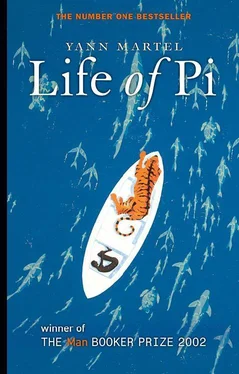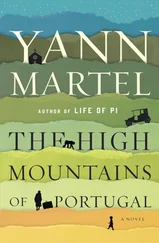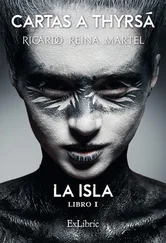Yann Martel - Life of Pi
Здесь есть возможность читать онлайн «Yann Martel - Life of Pi» весь текст электронной книги совершенно бесплатно (целиком полную версию без сокращений). В некоторых случаях можно слушать аудио, скачать через торрент в формате fb2 и присутствует краткое содержание. Год выпуска: 2002, ISBN: 2002, Издательство: Canongate Books, Жанр: Современная проза, на английском языке. Описание произведения, (предисловие) а так же отзывы посетителей доступны на портале библиотеки ЛибКат.
- Название:Life of Pi
- Автор:
- Издательство:Canongate Books
- Жанр:
- Год:2002
- ISBN:9781847674210
- Рейтинг книги:3 / 5. Голосов: 1
-
Избранное:Добавить в избранное
- Отзывы:
-
Ваша оценка:
- 60
- 1
- 2
- 3
- 4
- 5
Life of Pi: краткое содержание, описание и аннотация
Предлагаем к чтению аннотацию, описание, краткое содержание или предисловие (зависит от того, что написал сам автор книги «Life of Pi»). Если вы не нашли необходимую информацию о книге — напишите в комментариях, мы постараемся отыскать её.
Life of Pi — читать онлайн бесплатно полную книгу (весь текст) целиком
Ниже представлен текст книги, разбитый по страницам. Система сохранения места последней прочитанной страницы, позволяет с удобством читать онлайн бесплатно книгу «Life of Pi», без необходимости каждый раз заново искать на чём Вы остановились. Поставьте закладку, и сможете в любой момент перейти на страницу, на которой закончили чтение.
Интервал:
Закладка:
When Richard Parker returned as the day was ending, a little earlier than the previous day, I was expecting him. I sat tight and did not blow the whistle. He came to the water’s edge and in one mighty leap reached the side of the lifeboat. He entered his territory without intruding into mine, only causing the boat to lurch to one side. His return to form was quite terrifying.
The next morning, after giving Richard Parker plenty of advance, I set off to explore the island. I walked up to the ridge. I reached it easily, proudly moving one foot ahead of the other in a gait that was spirited if still a little awkward. Had my legs been weaker, they would have given way beneath me when I saw what I saw beyond the ridge.
To start with details, I saw that the whole island was covered with the algae, not just its edges. I saw a great green plateau with a green forest in its centre. I saw all around this forest hundreds of evenly scattered, identically sized ponds with trees sparsely distributed in a uniform way between them, the whole arrangement giving the unmistakable impression of following a design.
But it was the meerkats that impressed themselves most indelibly on my mind. I saw in one look what I would conservatively estimate to be hundreds of thousands of meerkats. The landscape was covered in meerkats. And when I appeared, it seemed that all of them turned to me, astonished, like chickens in a farmyard, and stood up.
We didn’t have any meerkats in our zoo. But I had read about them. They were in the books and in the literature. A meerkat is a small South African mammal related to the mongoose; in other words, a carnivorous burrower, a foot long and weighing two pounds when mature, slender and weasel-like in build, with a pointed snout, eyes sitting squarely at the front of its face, short legs, paws with four toes and long, non-retractile claws, and an eight-inch tail. Its fur is light brown to grey in colour with black or brown bands on its back, while the tip of its tail, its ears and the characteristic circles around its eyes are black. It is an agile and keen-sighted creature, diurnal and social in habits, and feeding in its native range—the Kalahari Desert of southern Africa—on, among other things, scorpions, to whose venom it is completely immune. When it is on the lookout, the meerkat has the peculiarity of standing perfectly upright on the tips of its back legs, balancing itself tripod-like with its tail. Often a group of meerkats will take the stance collectively, standing in a huddle and gazing in the same direction, looking like commuters waiting for a bus. The earnest expression on their faces, and the way their front paws hang before them, make them look either like children self-consciously posing for a photographer or patients in a doctor’s office stripped naked and demurely trying to cover their genitals.
That is what I beheld in one glance, hundreds of thousands of meerkats—more, a million—turning to me and standing at attention, as if saying, “Yes, sir?” Mind you, a standing meerkat reaches up eighteen inches at most, so it was not the height of these creatures that was so breathtaking as their unlimited multitude. I stood rooted to the spot, speechless. If I set a million meerkats fleeing in terror, the chaos would be indescribable. But their interest in me was short-lived. After a few seconds, they went back to doing what they had been doing before I appeared, which was either nibbling at the algae or staring into the ponds. To see so many beings bending down at the same time reminded me of prayer time in a mosque.
The creatures seemed to feel no fear. As I moved down from the ridge, none shied away or showed the least tension at my presence. If I had wanted to, I could have touched one, even picked one up. I did nothing of the sort. I simply walked into what was surely the largest colony of meerkats in the world, one of the strangest, most wonderful experiences of my life. There was a ceaseless noise in the air. It was their squeaking, chirping, twittering and barking. Such were their numbers and the vagaries of their excitement that the noise came and went like a flock of birds, at times very loud, swirling around me, then rapidly dying off as the closest meerkats fell silent while others, further off, started up.
Were they not afraid of me because I should be afraid of them? The question crossed my mind. But the answer—that they were harmless—was immediately apparent. To get close to a pond, around which they were densely packed, I had to nudge them away with my feet so as not to step on one. They took to my barging without any offence, making room for me like a good-natured crowd. I felt warm, furry bodies against my ankles as I looked into a pond.
All the ponds had the same round shape and were about the same size—roughly forty feet in diameter. I expected shallowness. I saw nothing but deep, clear water. The ponds seemed bottomless, in fact. And as far down as I could see, their sides consisted of green algae. Evidently the layer atop the island was very substantial.
I could see nothing that accounted for the meerkats’ fixed curiosity, and I might have given up on solving the mystery had squeaking and barking not erupted at a pond nearby. Meerkats were jumping up and down in a state of great ferment. Suddenly, by the hundreds, they began diving into the pond. There was much pushing and shoving as the meerkats behind vied to reach the pond’s edge. The frenzy was collective; even tiny meerkittens were making for the water, barely being held back by mothers and guardians. I stared in disbelief. These were not standard Kalahari Desert meerkats. Standard Kalahari Desert meerkats do not behave like frogs. These meerkats were most definitely a subspecies that had specialized in a fascinating and surprising way.
I made for the pond, bringing my feet down gingerly, in time to see meerkats swimming—actually swimming—and bringing to shore fish by the dozens, and not small fish either. Some were dorados that would have been unqualified feasts on the lifeboat. They dwarfed the meerkats. It was incomprehensible to me how meerkats could catch such fish.
It was as the meerkats were hauling the fish out of the pond, displaying real feats of teamwork, that I noticed something curious: every fish, without exception, was already dead. Freshly dead. The meerkats were bringing ashore dead fish they had not killed.
I kneeled by the pond, pushing aside several excited, wet meerkats. I touched the water. It was cooler than I’d expected. There was a current that was bringing colder water from below. I cupped a little water in my hand and brought it to my mouth. I took a sip.
It was fresh water. This explained how the fish had died—for, of course, place a saltwater fish in fresh water and it will quickly become bloated and die. But what were seafaring fish doing in a freshwater pond? How had they got there?
I went to another pond, making my way through the meerkats. It too was fresh. Another pond; the same. And again with a fourth pond.
They were all freshwater ponds. Where had such quantities of fresh water come from, I asked myself. The answer was obvious: from the algae. The algae naturally and continuously desalinated sea water, which was why its core was salty while its outer surface was wet with fresh water: it was oozing the fresh water out. I did not ask myself why the algae did this, or how, or where the salt went. My mind stopped asking such questions. I simply laughed and jumped into a pond. I found it hard to stay at the surface of the water; I was still very weak, and I had little fat on me to help me float. I held on to the edge of the pond. The effect of bathing in pure, clean, salt-free water was more than I can put into words. After such a long time at sea, my skin was like a hide and my hair was long, matted and as silky as a fly-catching strip. I felt even my soul had been corroded by salt. So, under the gaze of a thousand meerkats, I soaked, allowing fresh water to dissolve every salt crystal that had tainted me.
Читать дальшеИнтервал:
Закладка:
Похожие книги на «Life of Pi»
Представляем Вашему вниманию похожие книги на «Life of Pi» списком для выбора. Мы отобрали схожую по названию и смыслу литературу в надежде предоставить читателям больше вариантов отыскать новые, интересные, ещё непрочитанные произведения.
Обсуждение, отзывы о книге «Life of Pi» и просто собственные мнения читателей. Оставьте ваши комментарии, напишите, что Вы думаете о произведении, его смысле или главных героях. Укажите что конкретно понравилось, а что нет, и почему Вы так считаете.












